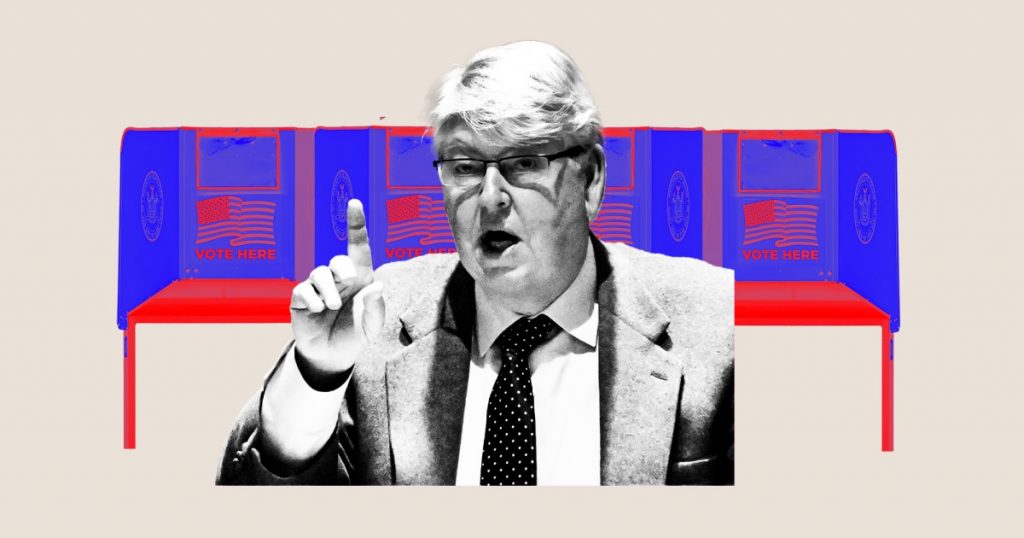A GOP Official and Election Denier Voted Illegally Nine Times. That’s Not Even the Worst Part.
Mother Jones illustration; Hyosub Shin/The Atlanta Journal-Constitution/ZUMA; Anthony Behar/AP
Fight disinformation: Sign up for the free Mother Jones Daily newsletter and follow the news that matters.It’s easy to see the glaring hypocrisy of Brian Pritchard, the Republican official in Georgia and outspoken election denier, who was found guilty this week of voting illegally nine times. A judge apparently did not buy Pritchard’s claims that he had been unaware that his probation from felony forgery charges had not ended when he illegally cast his vote. All this is ironic considering voter fraud is an enduring conservative boogeyman despite scant evidence that such rampant fraud exists.
Yet any schadenfreude that might be derived from Pritchard’s voting violations, which resulted in an order on Wednesday to pay a $5,000 fine and receive a public reprimand, is short-lived. It seems stunted by another piece of headline-making voter fraud news this week: A Texas court of appeals reversed a five-year prison sentence for Crystal Mason, a Black woman who voted illegally in 2016 after unintentionally casting her ballot while technically still a felon under Texas law. (The state bars convicted felons from voting until a supervised release has been completed.)
In the simplest terms, the reversal is good news; it’s hard not to feel emotional reading Mason’s statement celebrating that she will remain a “free Black woman.” But the wildly disparate punishments handed to Mason and Pritchard—a white man—over incredibly similar offenses once again underscores the deep flaws of a system borne out of a push to fix a virtually nonexistent problem. That Mason’s ordeal happened under the watch of Texas Attorney General Ken Paxton, who led the war on voter fraud while under indictment for securities fraud, adds to the dissonance. But for conservatives who have long relied on voter fraud fears to block ballot access, that whiplashing dissonance is precisely the point. As my colleague Pema Levy wrote in 2019:
Raising fears of fraud in order to make it harder for people—particularly people fitting certain demographic profiles—to vote didn’t start with [the Trump] administration, or even in the past 100 years. As Harvard University historian Alexander Keyssar lays out in his 2000 book, The Right to Vote: The Contested History of Democracy in the United States, the tactic dates back to the early decades of the 19th century. Throughout US history, politicians and activists ginned up stories about fraud in order to keep their opponents from the polls. “Legislative debates were sprinkled heavily with tales of ballot box stuffing, miscounts, hordes of immigrants lined up to vote as the machine instructed, men trooping from precinct to precinct to vote early and often,” he writes.
Put another way, these laws were never meant to hurt Brian Pritchard. This week, we were reminded of that once again.





